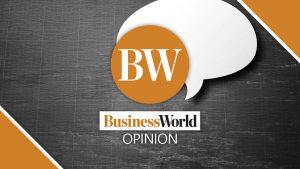AFI members commit to boost financial inclusion

MEMBERS of the Alliance for Financial Inclusion (AFI) have gathered in the Philippines and signed the Manila Manifesto, which sets the network’s commitment to collaborate with standard-setting bodies (SSBs) to boost financial inclusion.
About 700 delegates from over 70 countries are in town to attend the AFI Global Policy Forum in Pasay City and discuss how to make financial products and services accessible for 1.4 billion people globally who are still excluded from the formal financial system.
The forum is co-hosted by the AFI and the Bangko Sentral ng Pilipinas (BSP).
“We’re happy to report that (on Sept. 13), the AFI approved the Manila Manifesto. This manifesto documents the commitment of AFI members to broaden and deepen our cooperation with global participants in financial inclusion, including standard-setting bodies,” BSP Governor Eli M. Remolona, Jr. said in a press conference.
AFI Executive Director Alfred Hannig said every global policy forum has a deliverable that contains the commitment of the network to work closely with global standard-setting bodies.
“Although the global standards are meant and made for financial stability, often times we feel that additional knowledge could help shape these standards so they can take into account the reality of the countries we are working for,” Mr. Hannig said.
He said in the countries the AFI is working with, not everyone has all the requirements to get a bank account, such as a physical address.
“This kind of proportionality is an important issue we want to discuss with the global standard-setting bodies across the board. The Manila Manifesto is actually the commitment now that will enable us to enhance this cooperation and collaboration,” he said.
Some of the SSBs that engage with work relevant to financial inclusion are the Basel Committee for Banking Supervision, the Financial Action Task Force, the International Association of Deposit Insurers, the Committee on Payments and Market Infrastructures, International Association of Insurance Supervisors, and the International Organization of Securities Commissions.
In the Manila Manifesto, the AFI said there are challenges in the proportionate implementation of global standards for financial stability. These include the lack of capacity and resources, interagency coordination, and the collection and use of reliable data.
These challenges may produce unintended consequences for financial inclusion, the AFI said.
“There is scope for the SSBs and the AFI network to complement each other’s goals and enhance the alignment between the policy objectives of financial stability, integrity, and inclusion, both globally and through country-level implementation,” it said.
“The Manila Manifesto sets out the AFI network’s commitment to coordinate, collaborate, and engage with global SSBs, to pursue opportunities to advance systematic policy dialogue on areas where global standards have yet to be defined, such as on digital innovations, climate risks, and green finance,” it added.
Under the Manila Manifesto, AFI members committed to engage with global SSBs and their regional bodies to boost proportionate and risk-based implementation of global standard, while also advocating for a gender perspective in formulating global policies.
Members also committed to gather evidence on the impact of global standards by adopting data-driven approaches, deploying regulatory technologies to enhance supervision, and develop policy toolkits, guidelines, and case studies.
“In the fifteen years since AFI was created, with substantive support from the BSP, our members have brought over 840 million people into the financial system via enlightened national policies and strategies on financial inclusion,” Mr. Hannig said.
“Yet a quarter of adults remain excluded and vulnerable. By convening the global AFI Network in Manila, we can galvanize efforts to achieve full inclusion which leave no one behind,” he said.
The AFI is a global network of central banks and financial regulators that are working together to promote people’s access to the formal financial system. It has 85 member institutions from 76 countries worldwide.
In his opening remarks at the forum, Mr. Remolona said he is fully committed to broadening and deepening the reach of financial inclusion toward financial health, resilience, and a better life for Filipinos.
“Given the difficult challenges facing the world today, there is a compelling need for us to continue to share, support, and learn from one another on how we can lift more people out of poverty through financial inclusion,” he said.
The BSP wants 70% of Filipino adults to have a financial account by 2023. The country’s banked population was at about 56% of all adults in 2021, up from just 29% in 2019.
However, 34.3 million adults remained unbanked. — K.B. Ta-asan




